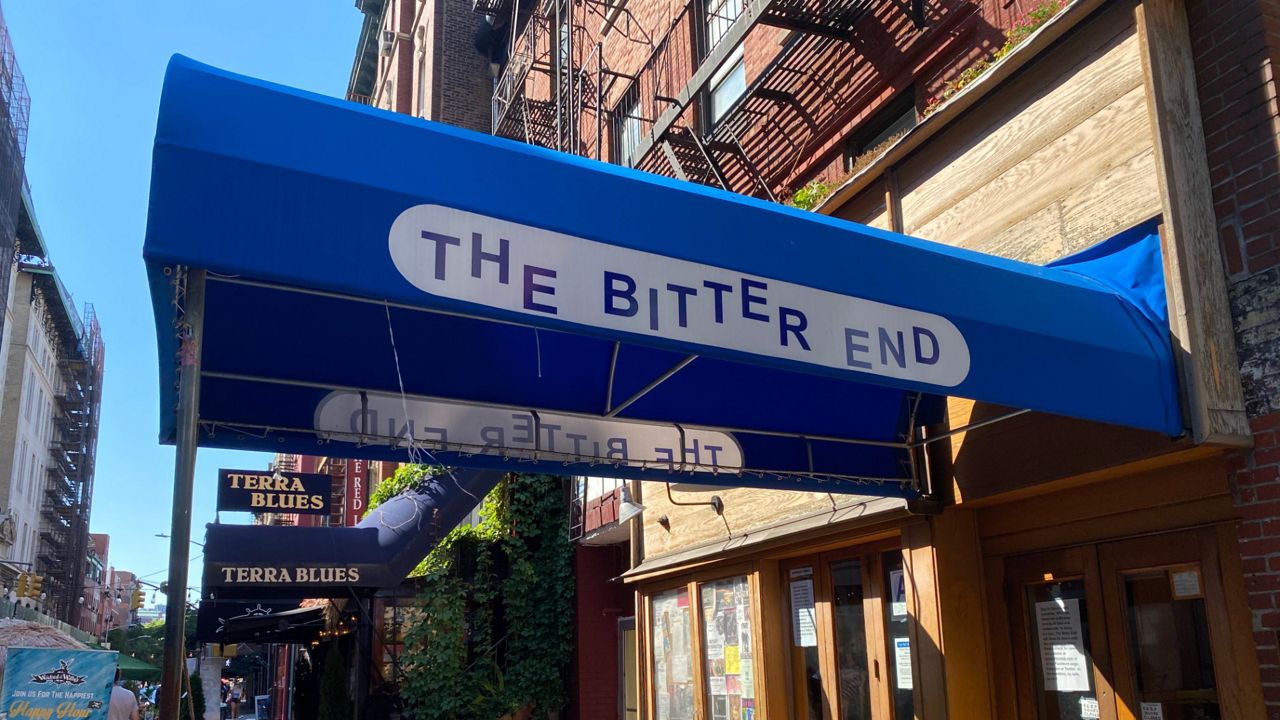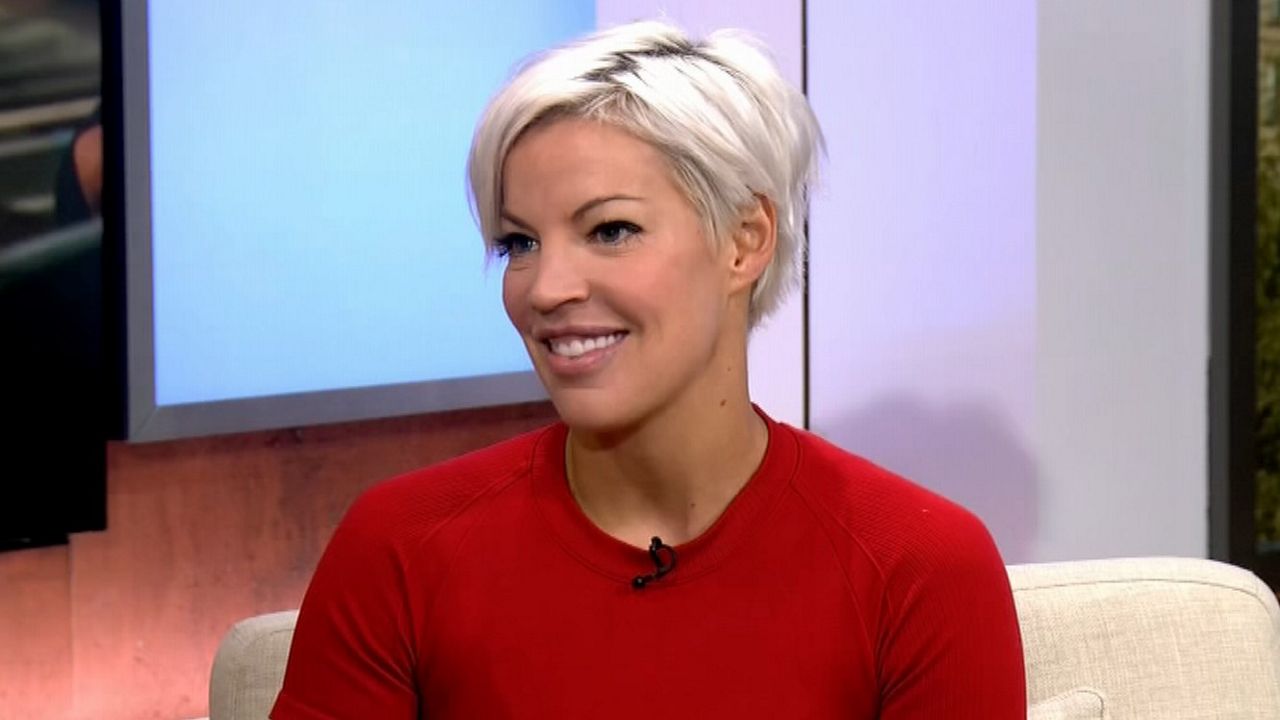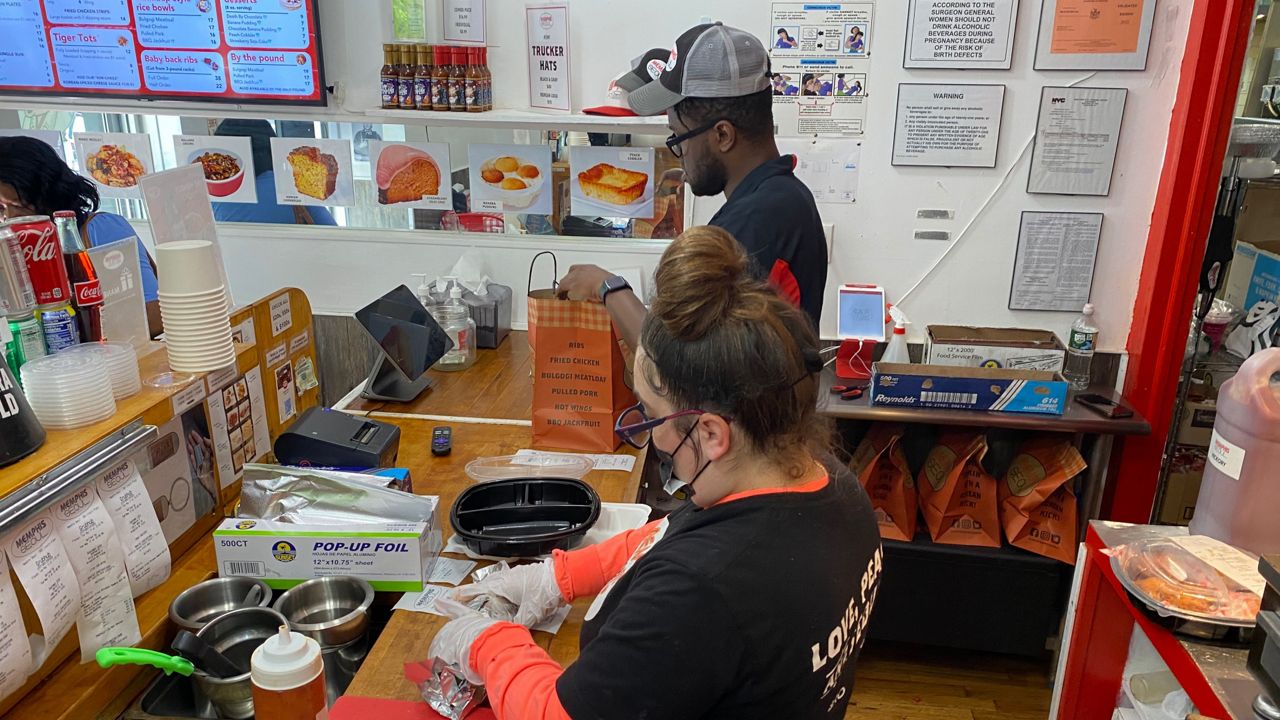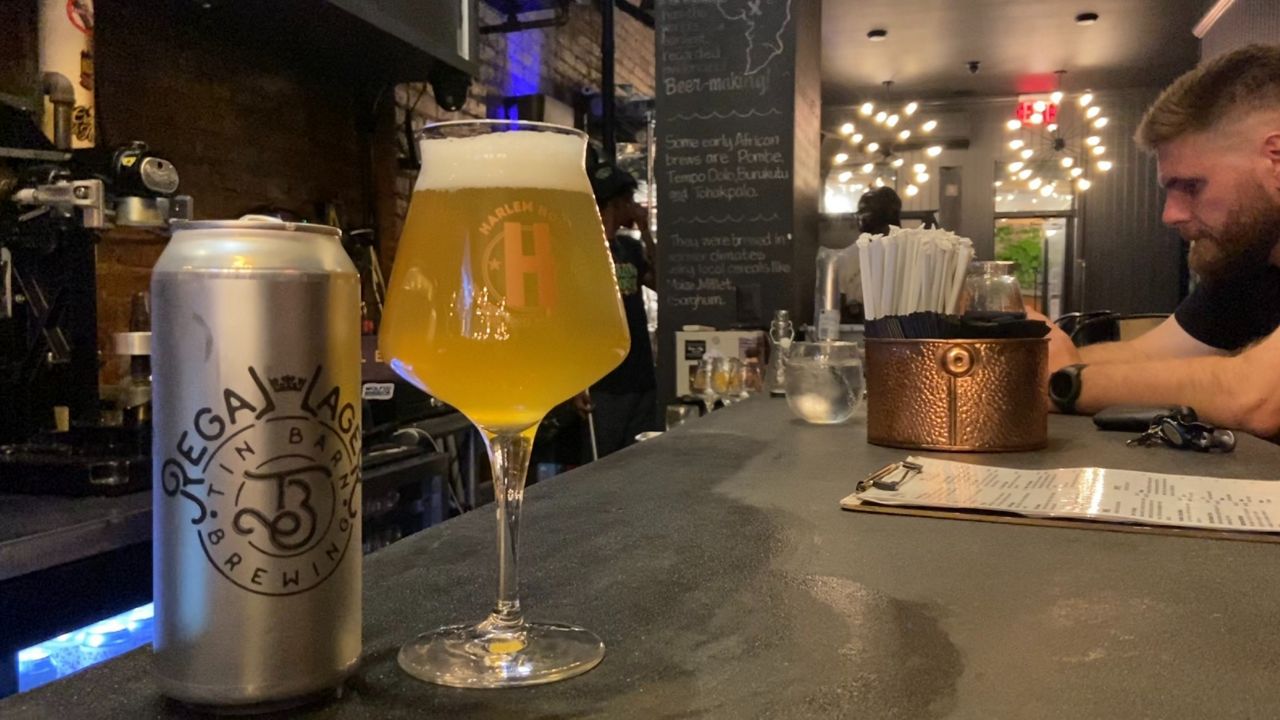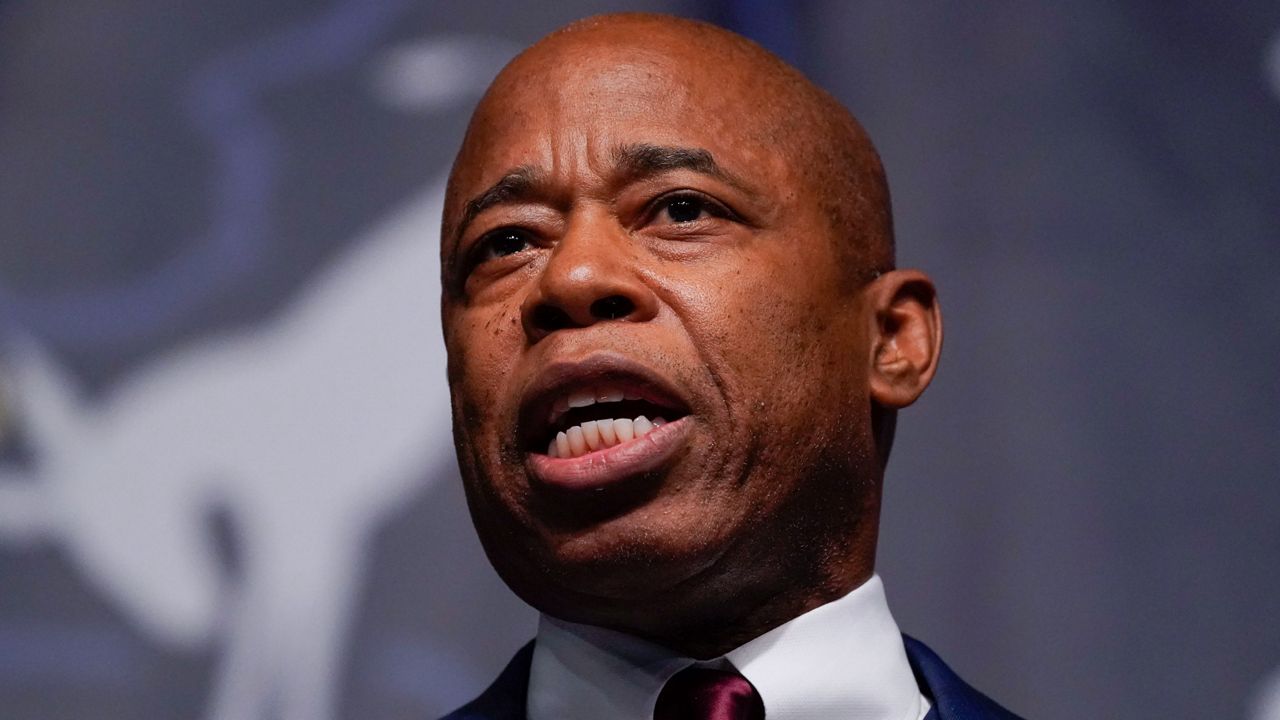NEW YORK - For 10 years, Olamide Faison was a regular on the Bitter End’s stage. He played most weeks at the small, unassuming venue on Bleecker Street in Greenwich Village, cultivating his sound in the same spot where many rock ’n’ roll legends – from Jimi Hendrix to Bob Dylan – also played.
Faison has been a musician for most of his life, playing in different venues across the country, including as part of ‘90s boy band Imajin. But his time at the Bitter End is special.
“New York City has had so many iconic venues, and the Bitter End is one of the last,” Faison said. “I played totally different venues. I played in front of ten thousand people in an arena. But there's just something about the Bitter End.”
The pandemic has forced Faison from the stage – and put the renowned club’s survival in jeopardy. Its closing would not only mean the erasure of a piece of music history, but the dispersal of a tight-knit family of employees and musicians.
For Faison, and many others, including Bitter End head waitress Anne Tutty, leaving the Bitter End is like leaving home.
Tutty started work at the Bitter End on Christmas Eve 1985, just a month after moving to New York City from Ireland. She knew nothing about American bars, and planned to return home to Ireland in a few years, when the recession in the country wasn’t so bad. But more than 30 years later, she was still there, hearing live music every night, watching new artists grow up and even become famous.
“I feel like we abandoned her, her as in the club,” Tutty said, recalling the day she and her co-workers finished their final shifts when the city shuttered in March. “We left her there by herself. We all just like, got in our lifeboats and left her there to drown."
Back in March, Tutty thought she’d be back at the club in a matter of weeks. But more than five months later, the Bitter End remains eerily quiet, with no concrete reopening date in sight.
Since 1961, the Bitter End has played on, through the deaths of its original owners, and after its ‘60s rock 'n' roll heyday had passed. Even as the Village drastically changed, from edgy bohemian paradise to an upscale neighborhood for celebrities and New York University.
The club is a relic of a different time for New York City and its music scene, one where live music venues proliferated, and rock music dominated. The Bitter End helped launch the careers of numerous musical giants, and has seen hundreds more play on its stage.
But the coronavirus pandemic is the Bitter End’s worst crisis yet, according to current owner Paul Rizzo.
“Maybe disco?” he jokes, when first asked if the club’s ever faced a challenge so serious. With rent at $23,000 a month and no regular income, it won’t take long to accumulate hefty debts.
Rizzo says he’s currently working with his landlords, with whom he has a good relationship, having known them for years.
“Negotiations going forward with landlords are pretty much what's going to determine people’s survival,” he said.
But even so, the club’s survival is precarious.
“There is always that fear that we can't open again,” Rizzo said. “If things aren't changed, then I don't know if I could survive for that amount of time with such a low capacity.”
Rizzo said he hopes to reopen in the fall, but with no imminent cure or vaccine for the coronavirus, it is unclear how the Bitter End will function. With proper social distancing, he estimates the club could hold at most 25 percent of its usual capacity, and that may not be enough people to pay the bills.
With indoor dining and movie theaters closed indefinitely, and Broadway dark until at least the new year, the timeline for the safe reopening of live music venues – especially small, indoor ones like the Bitter End – is murky. Though many of these indoor activities were slated to return during the city’s phase four reopening plan, Governor Cuomo withheld them at the last minute, concerned about a possible uptick in coronavirus cases. Cuomo has not announced a timeline or plan to reopen music venues in the near future.
A block from the Bitter End, the club (Le) Poisson Rouge also struggles with astronomical monthly rent, but no tangible profits while the pandemic continues. Brett Tabisel, music manager at (Le) Poisson Rouge, emphasized that music venues were among the first businesses to close and will likely be the last to reopen.
“Our entire business is built around having people in an intimate space, you know, having this experience together,” Tabisel said. “How are clubs and nightlife and that culture going to feel like when you have to stay six feet apart, which is probably impossible?”
Both the Bitter End and (Le) Poisson Rouge are involved with NIVA, or the National Independent Venue Association, an alliance of music businesses formed when the pandemic started. According to a recent survey of the group’s 2,000 members, 90 percent say they will not be able to survive without federal funding that exceeds the Paycheck Protection Program.
NIVA is pushing for Congress to pass bipartisan legislation like the Save Our Stages Act, which would provide six months of grants to qualifying independent venues.
Sen. Charles Schumer supports Save Our Stages and hopes it will pass as a part of the final COVID relief package, which is currently stalled in Congress.
“I am fighting hard, and joining forces with advocates like the Broadway League, to make sure the next COVID relief bill protects all of New York’s many stages, live music venues, and the jobs they support,” Schumer wrote in a statement to NY1. “The ‘Save Our Stages’ bill will help ensure the curtain does not close on the kinds of events and moments that make New York the envy of the world.”
(Le) Poisson Rouge’s Director of Operations Ruben Perez sees drastic ramifications for the city’s famous music scene should the majority of independent clubs close, including fewer opportunities for new and diverse artists.
“How do certain emerging artists or independent artists fare in a landscape like that where, you know, ten thousand artists are all competing for maybe a thousand, you know, a thousand dates a year that are available?” Perez said.
Though the greats don’t tour through the Bitter End as often as they did in the 1960s, many still return to pay tribute. But these days, the club is primarily a space for newer, or fairly unknown artists to play, with weekly open mic sessions on Sundays, and Monday night jam sessions, open to anyone with $10.
Faison worries that if the Bitter End closes, it will change the live music scene in the city, depriving new artists of a historic stage and the inspiration that comes with it.
“You live with that purpose of being extraordinary because so many extraordinary people graced the stage,” Faison said. “So many people that have graced that stage have literally put their fingerprints on the world.”
Adrian Thorstensen, who has been an audio engineer at the Bitter End since 2012, has the unique job of making amateurs sound as good as professional musicians on any given night.
“My goal is always to have the least experienced performers sound as good as the legends that return, and it's a weird place because you go from mixing somebody who's in their very first show to somebody like Nile Rodgers in the same night,” Thorstensen said.
Thorstensen has seen a lot of celebrities perform and visit the club, once almost hitting Bruce Willis in the face with a bar stool by accident. He saw David Crosby return to show the place to his family. He remembers when Kenny Gorka, a Bitter End owner who passed away in 2017, would have wine at the club with Billy Joel.
For Thorstensen, the club itself has a historic sound, one that shaped older artists, and that continues to shape new ones.
“There's a sound to the space that I think helps educate young performers and helps them develop into great performers,” Thorstensen said. "Back in [the '60s], everybody played there. So I think that everybody developed a sound through that, through the walls there. I've had guys come through to do covers of artists that have done classic records there, and they recognize just from performing that they hear the room as those records were.”
Tutty knows Lady Gaga, one of the club’s most notable recent alums, as Stephanie, “a little girl that ran around in boy shorts and a tank top.” Gaga took up a residency at the club in 2005, years before she became famous. Eleven years later, she returned to the club for a secret concert, where to Tutty’s surprise, Gaga ran up to her like an old friend.
"She just, like, grabbed me. She's a really beautiful young lady. She's genuine,” she said. “God only knows how many years it had been since she'd seen me, but she'd totally remembered."
Rizzo visits the empty club from time to time. He’s struck by its lifelessness, even though everything is where it should be – except, of course, the people.
Rizzo is cautiously optimistic about reopening, and he’s started a GoFundMe page to help with the process. For Tutty and her coworkers, another outcome is too hard to fathom. The club’s permanent end is too bitter to think about, the “elephant in the room” for her and her coworkers when discussing work.
“I am in for the long haul at this point in my life. The club and I, we've been through a lot, so we'll keep going,” she said. “Musicians need to play. And people need to hear live music again.”




